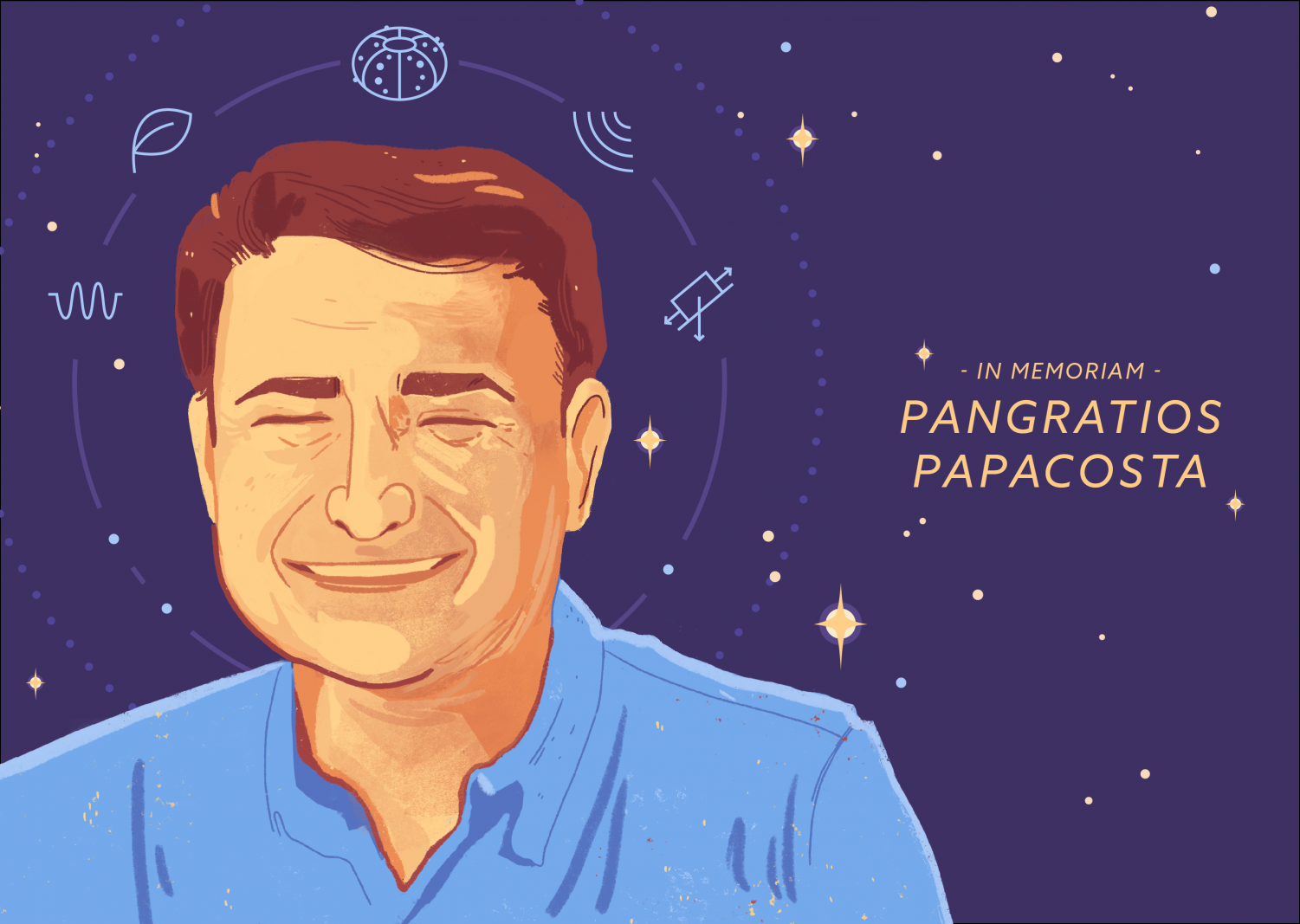Pangratios Papacosta ‘epitomized the best of what this college stands for’
July 24, 2019

Pangratios Papacosta’s office was always full of science, whether it was the research he was conducting or the plants and sea life he had collected. Papacosta would fill his office with sea urchin tests—or shells—and the plants he brought from home. After receiving compliments on his green thumb, he brought more plants to decorate the fifth floor offices of the 623 S. Wabash Ave. building.
Papacosta, a professor emeritus who taught at Columbia for 30 years, died in London on April 22, according to a statement from Lambrini Lukidis, assistant vice president of Strategic Communications and External Relations.
“Everyone was always looking forward to the next conversation [with him],” said Associate Professor in the Science and Mathematics Department Elizabeth Davis-Berg, who will be officially promoted to the rank of professor on August 15. Davis-Berg said Papacosta would print out articles about snails—her area of research—and put them in her mailbox with the written sentiment “Thought of you.”
“He was the dictionary definition of a gentleman and a scholar,” said Eric May, associate professor in the English and Creative Writing Department. “I can’t remember once when I would run into him and he did not have a smile. He was one of my favorite people in this place.”
A native of Cyprus, Papacosta earned his master’s degree in history of science and his doctorate degree in physics from the University of London. He joined Columbia in 1987, according to the communications office.
Gerald Adams, an associate professor in the Science and Mathematics Department, was on the hiring committee that interviewed Papacosta for his job at Columbia around 30 years ago.
“He was very friendly and … an extremely talented teacher,” Adams said. “He was a very passionate scientist.”
Papacosta, who formerly served as chair for the Science and Mathematics Department, also served as the vice president of Faculty Senate and was the first recipient of the Teaching Excellence Award in 1994 when it was reinstated. In addition to his time on Faculty Senate, Papacosta helped serve on the first All College Tenure Committee.
“’Pan’ on a committee meant your committee was going to get things done,” Davis-Berg said.
Papacosta was perfect for committees because he could make the tough decisions while being respectful, May said.
Papacosta also wrote “The Splendid Voyage: An Introduction to New Sciences and New Technologies,” which was translated into several languages, according to Lukidis.
In a July 8 email from the Office of the Provost, signed by Azar Khosravani, professor and chair of the Science and Mathematics Department, and Steven H. Corey, dean of the School of Liberal Arts and Sciences, his colleagues wrote: “Pan was passionate about physics and was also an avid student of the history of science. He especially championed some of the forgotten researchers, particularly women, whose work was used by more famous male colleagues.”
Papacosta helped highlight and revitalize appreciation for the astronomical work of Henrietta Leavitt, according to the July 8 email.
In 1998, Papacosta and Columbia colleague Ann Hanson were accused by two Columbia professors of plagiarizing in a published article about an assessment method at Columbia. The focus of the article was that students could turn in final projects in creative ways, such as a poem or piece of art. Papacosta and Hanson sued for defamation and were awarded a $250,000 damage settlement in 2001. They argued in their lawsuit that the idea had been widely discussed and there was no need to credit other professors.
Adams will remember Papacosta most for his intellectual generosity, and how he was always happy to share his vision of education.
“He worked as hard as he could to make Columbia be all it could be,” May said. “[Pan] epitomized the best of what this college stands for.”







